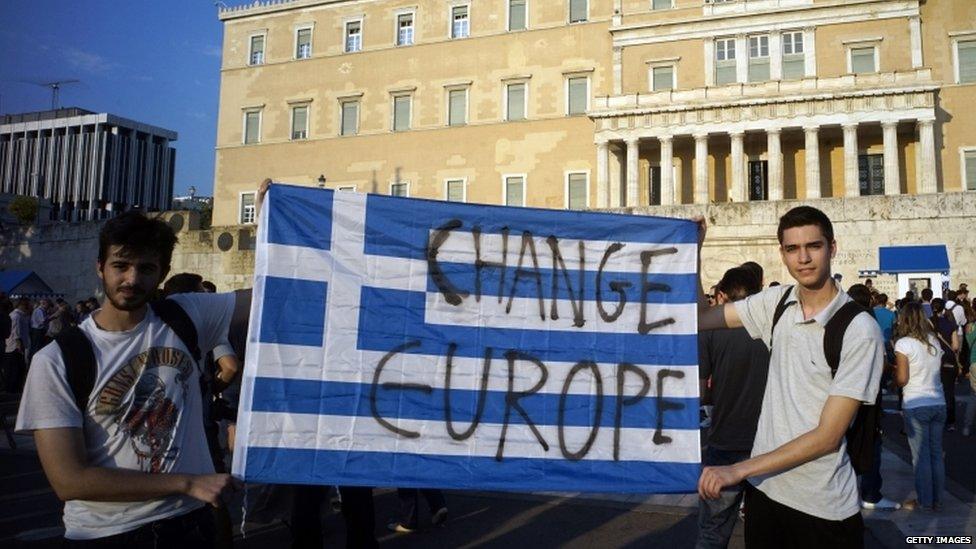Europe's political currents old and new collide
- Published
- comments
The BBC's Katya Adler reports on "desperate times" for people in Greece
As you make your way through the flag-waving, gesticulating, chanting crowds of pro and anti-government protestors here in Athens - in the lead-up to Greece's Sunday referendum on bailout conditions imposed by its international creditors - you get the feeling that this is about something bigger than Greece's financial crisis, bigger even than the future of the eurozone.
This is where the two powerful socio-political currents currently pulsing through Europe collide and clash.
On the one hand, you have the traditional powers that be - bankers, big business and traditional political parties, imposing their will from above.
And on the other are grassroots movements, populist and people-driven, saying a loud NO to the status quo. They are offering an alternative vision of society (in Spain, Italy and France, for example) whose workability on a national level has yet to be proven.
The two lead-roles on the Greek stage are played by the Troika (that is, Greece's international creditors - the European Commission, ECB and IMF) and left-wing Syriza, carrying its supporters in its rolled-up shirt sleeves.

The ideological abyss between them has been publicly demonstrated over the last five months and it's not diminishing with time.
Angela Merkel is the most well-known face of Greece's paymasters.
On Monday, the German chancellor repeated her belief that "if the euro fails, Europe fails".
But what kind of Europe is she talking about?
Acute EU dissatisfaction is a syndrome now affecting and infecting the whole continent.
High unemployment, sluggish growth, if any, a deteriorating quality of life for the majority, while the super-affluent minority continues to profit - the call for change, for a new Europe, is widespread.
Two prominent European politicians now loudly trumpet that call: the Greek Prime Minister Alexis Tsipras and his British counterpart, David Cameron.
But their visions for a new European dawn are quite, quite different.